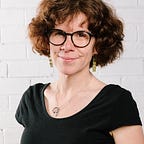An ethics framework to guide CPI’s research in ANZ
Listening as research
At CPI we do a lot of listening. We listen to communities, teams, groups and government officials and leaders of every kind. We feedback what we hear to shape learning and change processes, encourage and develop teams and explore new possibilities for those we work with. This is research. Although it doesn’t feel like it, this kind of work is not without risk and the potential for harm. This is why, in the same way that researchers within academic institutions submit their plans for scrutiny, the CPI team here in Australia and New Zealand Aotearoa want to scrutinise our plans for research to make sure our work is reaching the highest ethical standards.
Because we are not within a research institution we have been free to define what that might mean, and here we share our plans for scrutiny with you. We are sharing them so that you can suggest ways we can be better, call us out (or in!) when we get it wrong, and share the journey so that others can take what we have done and maybe adapt it for their own contexts.
The process
We have drawn on Australian industry standards for ethical research practice (the Australian Code for the Conduct of Responsible Research and the AIATSIS Code of Ethics for Aboriginal and Torres Strait Islander Research) to form the basis of our new assessment template. This template will be completed at the start of a project lifecycle and be revisited regularly depending on the project duration. This will be supplemented by a yearly reflective review of practice, guided by a professional ethicist to support the team as we adapt and change and embed the promotion of dignity into all our work. View the document here.
Design principles
We had several design principles that shaped this document.
How might we promote dignity in addition to preventing harm?
Reviewing the ethics of our practice is an opportunity to look for ways to enhance the dignity of people we come into contact with, and move away from an ethical screen that focuses solely on the avoidance of harm. Ethical practice should do both and we want to challenge ourselves to think in this way.
How might we manage our awareness of inequity that demands a different response but avoid stigmatising those who experience inequity?
We really struggled to define equity without using words like vulnerability and disadvantage. These terms feel blunt, and while important to highlight inequality in society, do not help us understand the diversity within groups of people they describe. We spoke to First Nations people who resented being described as vulnerable due to their race, despite the reality of the systemic racism in society that they face every day, and the intergenerational trauma many of them experience. How do we direct support to where it is needed, without assuming based on a societal label or stigmatising? We are still grappling with this one.
How might we grow and develop as a team in terms of ethical practice?
We recognise our own biases and assumptions that might lead to unethical decision making, despite our best attempts. We want to become more self-aware and live to opportunities to make good ethical decisions. For this reason, instead of a checklist of things that have to be done to avoid harm, we have framed this document as a series of reflective questions for the project team to consider. We understand that personal and professional development often happens best through reflection, so we have set ourselves up to learn in this way. If we are successful we will be able to look at our practice in a year and see how the questions do not prompt any new work or changes to plans, as this practice has become business as usual.
What now?
Now we put it into practice! If you have any thoughts on this framework, and additions or subtractions you would make or ideas it sparks for you, we would love to hear. We’ve made a version of this document available as a google doc online and open to comments, so please feel free to comment on what you like or think could be improved. We will be watching with interest and looking to improve this document based on your thoughts and our experiences over the year. We will blog about this process and the changes we make after our first annual reflection session booked in with the external ethicist in November, so stay tuned for that!
